Search
Remove Ads
Advertisement
Summary 
Loading AI-generated summary based on World History Encyclopedia articles ...
Search Results
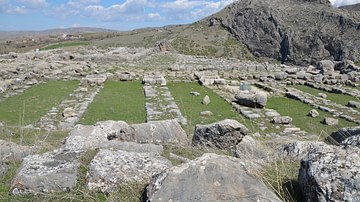
Definition
Bronze Age Collapse
The Bronze Age Collapse (also known as Late Bronze Age Collapse) is a modern-day term referring to the decline and fall of major Mediterranean civilizations during the 13th-12th centuries BCE. The precise cause of the Bronze Age Collapse...
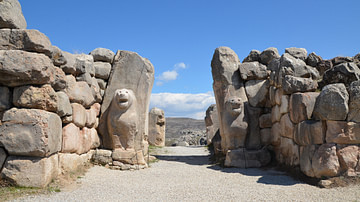
Interview
Interview: The Mysterious Bronze Age Collapse with Eric Cline
The decline of the Late Bronze Age civilizations of the Mediterranean and Near East has puzzled historians and archaeologists for centuries. While many have ascribed the collapse of several civilizations to the enigmatic Sea Peoples, Professor...
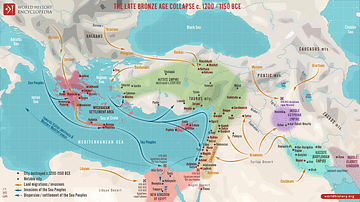
Image
The Late Bronze Age Collapse c. 1200 - 1150 BCE
This map illustrates the Late Bronze Age Collapse (c. 1200–1150 BCE), a sudden and widespread upheaval that brought down many of the interconnected civilizations of the Aegean, Eastern Mediterranean, Anatolia, and Mesopotamia. The once-mighty...
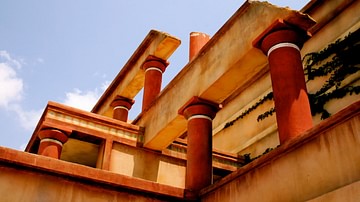
Definition
Bronze Age Aegean
The Bronze Age (c. 3000-1000 BCE) is the period when cultures were either using, producing, or trading bronze. Several cultures flourished around the Aegean Sea during this period: the Minoan civilization on Crete, the Mycenaean civilization...
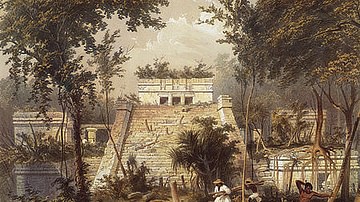
Article
The Classic Maya Collapse
The Mesoamerican Terminal Classic period (c. 800-925) saw one of the most dramatic civilization collapses in history. Within a century or so the flourishing Classic Maya civilization fell into a permanent decline when once-great cities were...

Video
The Bronze Age Collapse (In Our Time) - BBC
Melvyn Bragg and guests discuss The Bronze Age Collapse, the name given by many historians to what appears to have been a sudden, uncontrolled destruction of dominant civilizations around 1200 BC in the Aegean, Eastern Mediterranean and Anatolia...

Definition
Greek Dark Age
The Greek Dark Age (c. 1200 to c. 800 BCE, overlapping with the Iron Age, c. 1200-550 BCE) is the modern-day term for the period in Greek history following the Bronze Age Collapse when the Mycenaean Civilization fell and the Linear B writing...
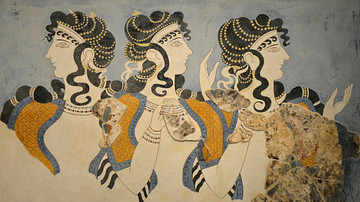
Article
Beauty in the Bronze Age - Minoan & Mycenaean Fashion
Dress and appearance in Bronze Age Greece (c. 3100 BCE - c. 1100 BCE) played a part in defining gender roles and emphasising idealized beauty that planted the seed for modern-day standards. The Minoans turned the island of Crete into a Mediterranean...
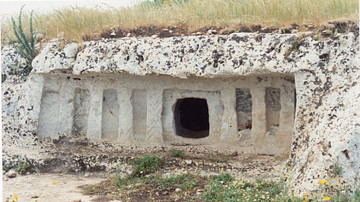
Article
Bronze Age Sicily
The Bronze Age in Sicily, considered one of the most important periods of the island's prehistory, witnessed the establishment of a unitary and in some ways artistically vibrant culture. The three main phases of the period take their name...
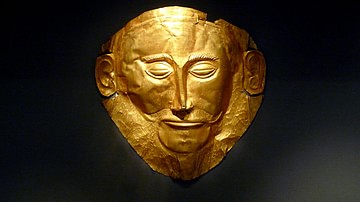
Definition
Mycenaean Civilization
The Mycenaean civilization flourished in the Late Bronze Age (c. 1700-1100 BCE), peaking from the 15th to the 13th century BCE. The Mycenaeans extended their influence throughout the Peloponnese in Greece and across the Aegean from Crete...